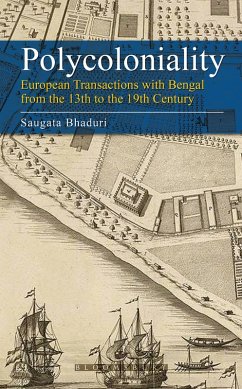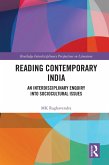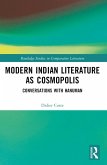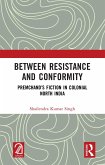Polycoloniality is a study of the activities of non-British European powers and players - primarily the Portuguese, the Dutch, the French, the Danish, the 'Germans' (representatives of the Austrian and Prussian empires), the Swedish and the Greek - in Bengal from the late 13th to the early 19th century, and their role in shaping Bengal's brush with 'colonial modernity' prior to, and possibly more foundationally than, the English.
Much of the traditional historiography of colonialism, in South Asia in general and Bengal in particular, and the resultant postcolonial commonsense, is woefully mononational, with the focus being almost exclusively on England and its colonial exploits. This is obviously factually incorrect and inadequate, with the multiple European nations named above having had simultaneous colonial contact with Bengal from the 16th century, and there having been a steady flow of Europeans, primarily Italians, to Bengal from at least the late 13th century. More importantly, it is these multiple European players, rather than the English, who can be credited with the setting up of the first cosmopolitan cities in Bengal, its first colleges and universities, the beginnings of print culture in Bengali, the foundations of the modern linguistic, literary and cultural registers of Bengal, the first instances of social and political reforms, etc.
Apart from an elaboration of all the above, can Polycoloniality, or a re-look at Bengal's colonial history through the lens of plurality, also offer a template to understand the multinational forms of current new-imperialism more fittingly than postcolonial commonsense can?
Much of the traditional historiography of colonialism, in South Asia in general and Bengal in particular, and the resultant postcolonial commonsense, is woefully mononational, with the focus being almost exclusively on England and its colonial exploits. This is obviously factually incorrect and inadequate, with the multiple European nations named above having had simultaneous colonial contact with Bengal from the 16th century, and there having been a steady flow of Europeans, primarily Italians, to Bengal from at least the late 13th century. More importantly, it is these multiple European players, rather than the English, who can be credited with the setting up of the first cosmopolitan cities in Bengal, its first colleges and universities, the beginnings of print culture in Bengali, the foundations of the modern linguistic, literary and cultural registers of Bengal, the first instances of social and political reforms, etc.
Apart from an elaboration of all the above, can Polycoloniality, or a re-look at Bengal's colonial history through the lens of plurality, also offer a template to understand the multinational forms of current new-imperialism more fittingly than postcolonial commonsense can?









